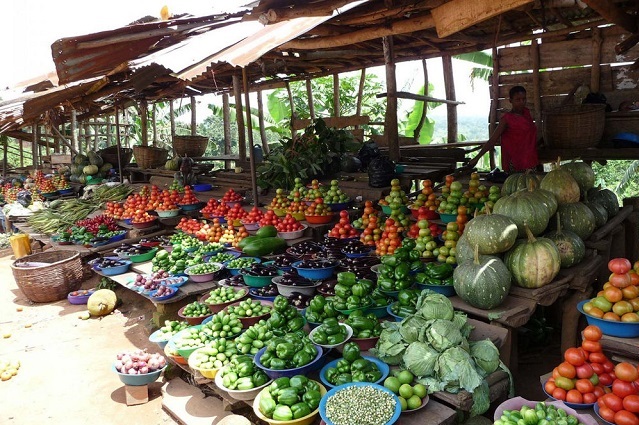
Kampala, Uganda | THE INDEPENDENT | Advocates for sustainable food systems in Africa have launched a program that aims at empowering consumers to demand the most appropriate food policies by 2026.
The initiative dubbed “Transforming the African Food System to Sustainability (TAFS)” project specifically aims to promote healthy and “culturally appropriate food” to interest the different communities in focusing on indigenous food and varieties and production techniques.
The project, under the theme: “My Food is African” is led by the umbrella organization, Alliance for Food Sovereignty in Africa (AFSA) should lead to food sustainability on the continent as well as protect Africa from foreign control of the global food system.
Charles Mulozi Olweny, Advocacy, and Campaigns Coordinator, said that the reason Africa is now importing food is because the populations have abandoned indigenous production while the governments have not bothered to have proactive policies.
AFSA General Coordinator, Million Belay said their study of the policies in the 27 African countries under the Program reveals that there is no consistency in national food policies, while even within a country, policies conflict with each other.
He welcomes the fact that food systems are top of the agenda for the next CAADP (2025 Comprehensive Africa Agricultural Development Programme), which has until now focused on value chains and increased productivity.
CAADP is part of the African Union’s Agenda 2063 and is aimed at helping African countries eliminate hunger and reduce poverty by raising economic growth through agriculture-led development.
Over the past three years, AFSA has undertaken the initiative to empower African citizens in shaping a coherent, flexible, and purposeful African Food Policy.
The study done across Africa between 2020 and 2022, focusing on national policy analyses and dialogues informed the basis for “an inclusive sustainable food systems approach,” according to AFSA.
Josephine Akia, the Country Manager of Pellum Uganda, a member of the alliance says the project aimed at making Ugandans, especially the elites, urban and youth populations appreciate the consumption of indigenous and traditionally prepared foods as opposed to processed fast foods.
In 2022, the group, in collaboration with the Swedish International Development Agency (SIDA), launched a project dubbed “Mobilizing for an African Food Policy (MAFP)-My Food is Africa”.
“While notable progress has been made at the country and regional levels, there is a recognized need to expand this transformative work to additional communities,” says AFSA.
SIDA agreed to finance another three-year project titled “Transforming the African Food System to Sustainability (TAFS) – My Food is African”, which focuses on addressing challenges in the African food system and promoting agroecology, policy advocacy, and stakeholder engagement.
Ayele Kebede, a Senior Programs Officer at SIDA, says the project aims at pushing and getting the attention of policymakers and the general public to appreciate the risky food situation the countries are in, including relying on imports and suffering consequences of actions in other regions.
*****
URN
 The Independent Uganda: You get the Truth we Pay the Price
The Independent Uganda: You get the Truth we Pay the Price



They should promote organic agriculture.